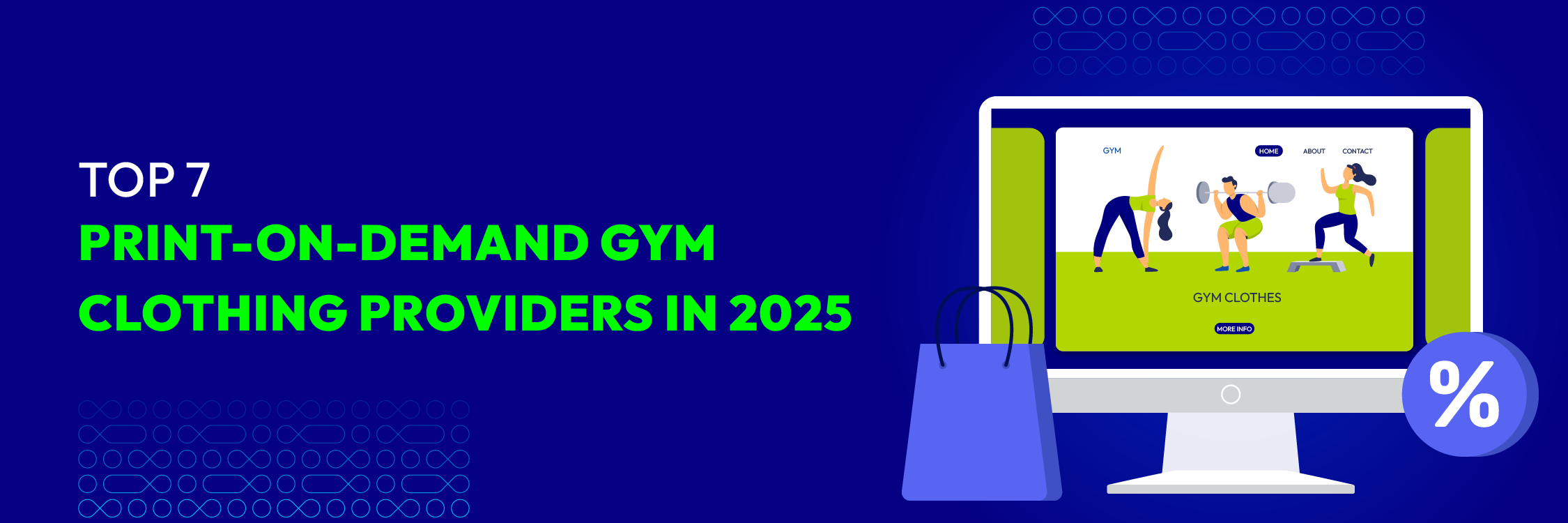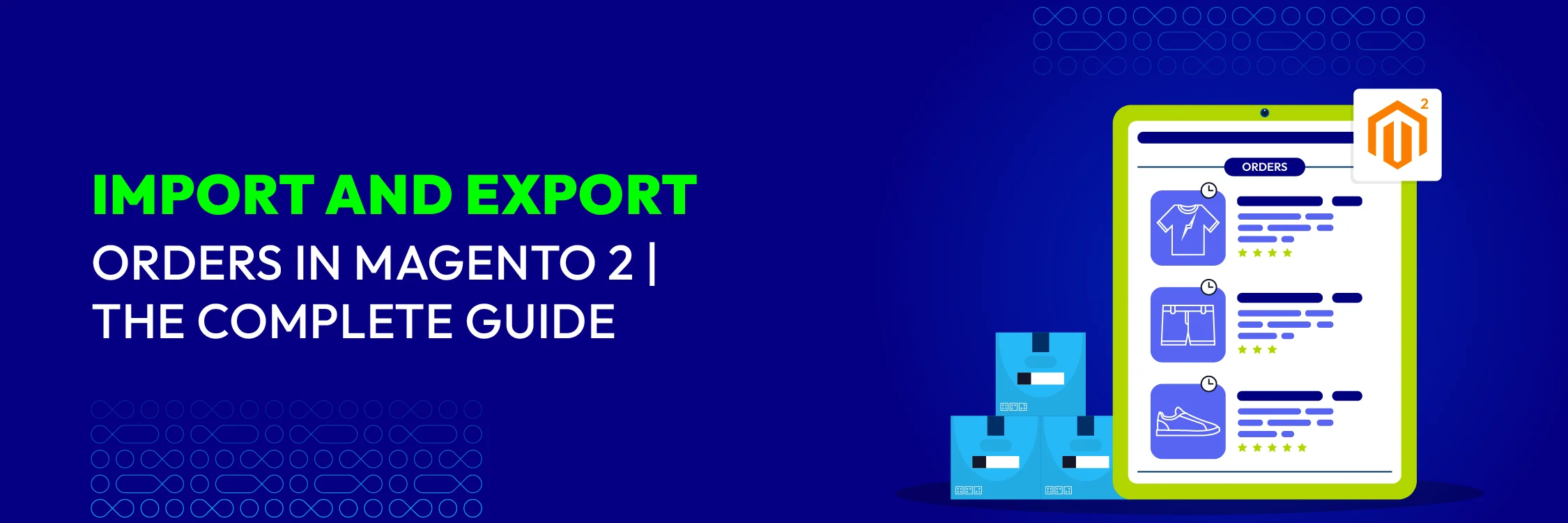B2B eCommerce for Manufacturers: Guide to operating quickly
Summer Nguyen | 12-18-2024
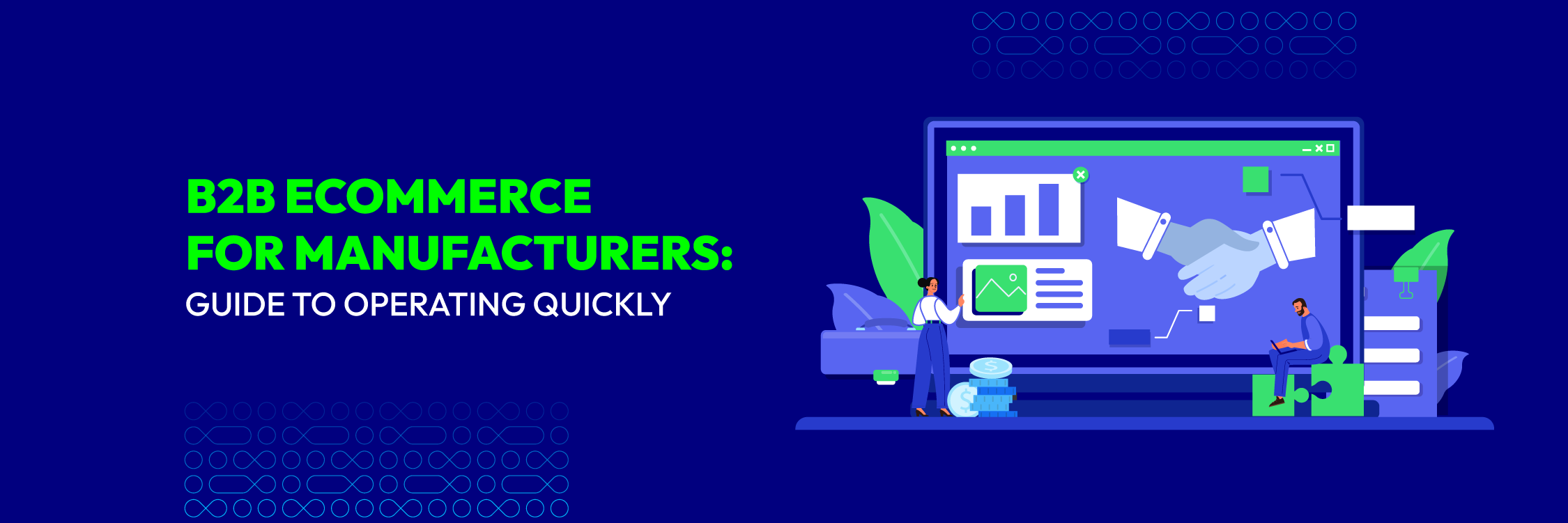
In 2023, B2B eCommerce for manufacturers have the chance to transcend boundaries and connect with clients, suppliers, and partners on a global scale, all through the medium of a virtual storefront. This article delves into the nuances of B2B eCommerce, offering insights that range from selecting the right platform to optimizing the customer journey. Whether you’re a seasoned manufacturer seeking to pivot into the digital realm or a newcomer ready to establish your online presence, this article will serve as your compass to navigate the intricacies of B2B eCommerce for manufacturers with confidence.
The B2B manufacturer buyer’s transformation
In the ever-evolving landscape of B2B eCommerce, the transformation of B2B manufacturer buyers is reshaping the way business is conducted.
Understanding the transformation
Gone are the days of traditional manufacturer-buyer relationships. The B2B Manufacturer Buyer’s Transformation signifies a paradigm shift where technology, data, and changing market dynamics are redefining the buyer’s role.
Key aspects of the transformation
- Digital integration: Manufacturer buyers are increasingly leveraging digital platforms to streamline their procurement processes. Online portals, e-procurement systems, supplier onboarding software solutions, and real-time communication tools have become integral to their operations.
- Data-driven decision making: The transformation is driven by data. Manufacturer buyers now have access to insights that enable them to make informed decisions based on market trends, buyer behavior, and product performance.
- Collaborative approach: The transformation emphasizes collaboration between manufacturers and buyers. Manufacturer buyers are now strategic partners, seeking value-added solutions and long-term relationships.
- Customization and personalization: The B2B Manufacturer Buyer’s Transformation demands personalized experiences. Buyers expect tailored solutions that address their unique challenges and requirements.
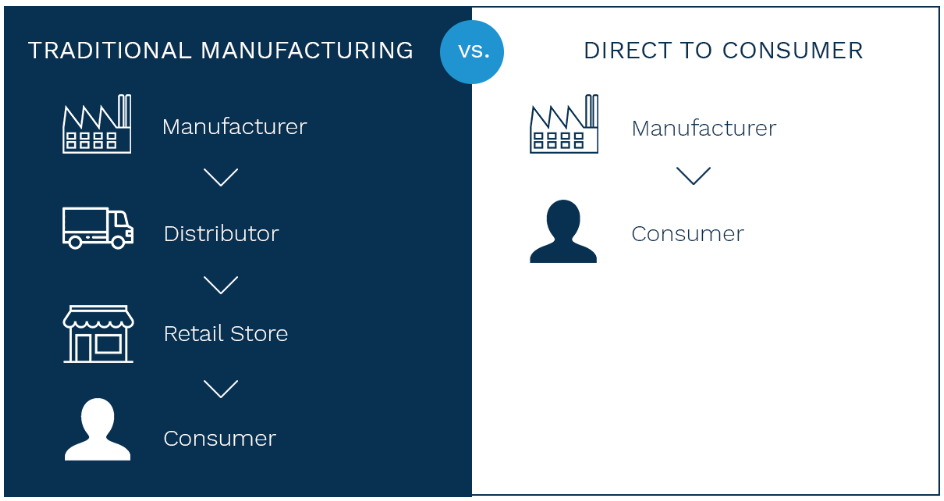
Embracing the change
To effectively navigate this transformation, manufacturers must consider strategic actions:
- Digital engagement: Establish a strong online presence to engage with digitally-savvy manufacturer buyers effectively.
- Data utilization: Leverage data analytics to understand buyer preferences, trends, and pain points, enabling you to tailor your offerings.
- Collaborative solutions: Embrace a consultative approach, offering solutions that align with the goals and challenges of manufacturer buyers.
- Digital convenience: Provide user-friendly online platforms that enable manufacturer buyers to research, compare, and transact seamlessly.
Seizing the opportunities
The B2B Manufacturer Buyer’s Transformation is a call to action. Manufacturers that adapt to this transformation and proactively align their strategies with the evolving needs of manufacturer buyers will emerge as industry leaders.

Discover Magento 2 B2B today and bring your wholesale business to the next level
Check it out!How does ecommerce appear for manufacturers?
B2B eCommerce for manufacturers presents a distinct landscape that has evolved significantly over the past few years. No longer limited to traditional brick-and-mortar operations, manufacturers are now leveraging digital platforms to connect with customers and streamline their operations. Here’s a comprehensive look at what e-commerce looks like for manufacturers:
- Customization and personalization: E-commerce enables manufacturers to offer tailored products and experiences. Buyers can often customize products based on their specific needs, selecting features, materials, sizes, and more. This personal touch enhances customer satisfaction and loyalty.
- Digital catalogs and product information: Manufacturers are moving away from traditional paper catalogs. Instead, they provide comprehensive digital catalogs that are easily accessible to buyers. Detailed product information, specifications, images, and videos help buyers make informed decisions.
- B2B marketplaces: B2B e-commerce platforms and marketplaces provide manufacturers with an additional channel to reach potential buyers. These platforms connect manufacturers with a wide range of businesses seeking their products, expanding their reach and market penetration.
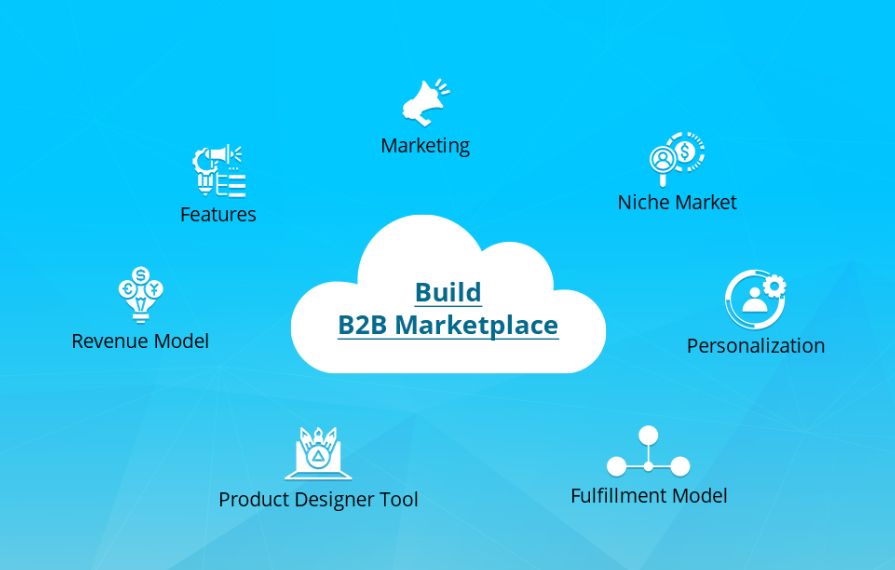
- International reach: E-commerce eliminates geographical barriers, enabling manufacturers to reach customers globally. This opens up opportunities for expansion into international markets without the need for physical presence.
- Integration of emerging technologies: Manufacturers are exploring emerging technologies like augmented reality (AR) and virtual reality (VR) to enhance the e-commerce experience. These technologies enable buyers to visualize products in real-world scenarios before making a purchase.
In essence, e-commerce for manufacturers is a transformative shift that empowers them to connect directly with buyers, streamline operations, offer tailored experiences, and leverage data insights for growth. It’s a dynamic landscape that continues to evolve, presenting manufacturers with new avenues for innovation and expansion.
Benefits of B2B eCommerce for manufacturers
B2B eCommerce for manufacturers has emerged as a game-changer, ushering in a multitude of benefits that reshape how business is conducted. The advantages are extensive, ranging from expanding reach to enhancing efficiency and everything in between. Delve into the core benefits that B2B eCommerce brings to manufacturers:
- Ability of extension: B2B eCommerce liberates manufacturers from geographical constraints. It enables businesses to transcend borders and reach a global audience without the need for physical presence, opening up avenues for growth that were previously unimaginable.
- Direct access to customers: Connecting directly with buyers empowers manufacturers to build stronger relationships. By bypassing intermediaries, manufacturers gain invaluable insights into buyer preferences and needs, enabling more personalized and effective interactions.
- Opportunities to innovate: The digital shift presents manufacturers with a realm of innovation. From adopting cutting-edge technologies to crafting novel business models, B2B eCommerce encourages manufacturers to explore creative avenues for delivering value to their customers.
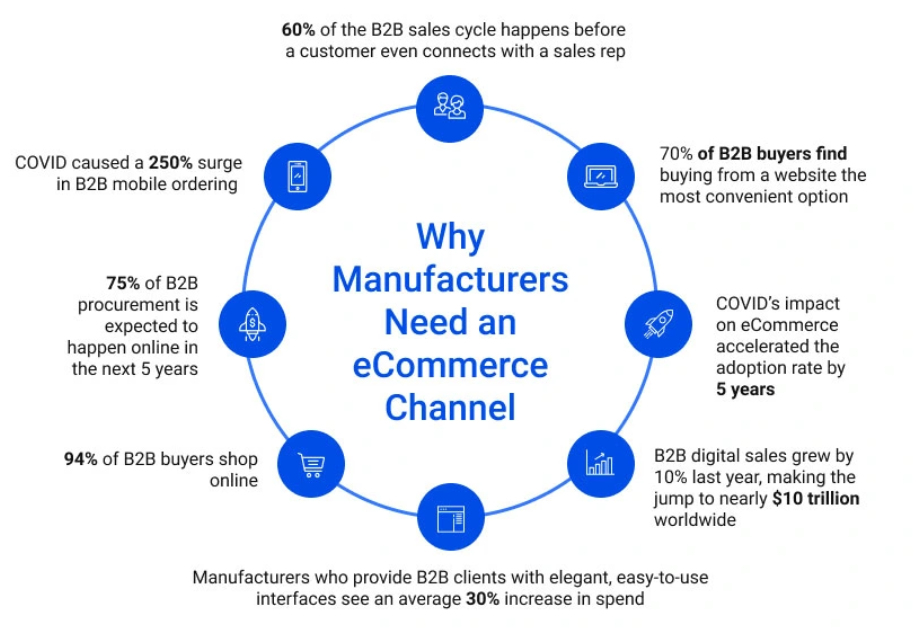
- Improve efficiency: The streamlined processes of B2B eCommerce for manufacturers enhance operational efficiency. Ordering, invoicing, and inventory management become more automated, reducing manual errors and freeing resources for more strategic endeavors.
- Sell your complete catalog: Unlike traditional methods, B2B eCommerce allows manufacturers to showcase their entire product catalog. This expanded visibility ensures that no product goes unnoticed, ultimately increasing sales opportunities.
- Brand awareness: Online platforms amplify brand exposure. With B2B eCommerce, manufacturers can tell their story, showcase their expertise, and differentiate themselves in a crowded market, fostering brand loyalty and recognition.
How to effectively use B2B eCommerce for manufacturing
1. Create an engaging website
An engaging website is your digital storefront, offering an immersive experience that captures the attention of your B2B buyers. To create an impactful and captivating online presence, follow these steps:
- Define your brand identity: Before diving into design, clarify your brand identity. Understand your mission, values, and unique selling points to infuse your website with a consistent brand message.
- Understand your audience: Know your B2B buyers intimately. Identify their pain points, preferences, and expectations to tailor your website’s design and content to resonate with them.
- User-centric design: Prioritize user experience (UX). Design an intuitive layout that guides visitors seamlessly through your website. Use clear headings, logical navigation, and ample white space for easy readability.
- Captivating visuals: Leverage high-quality visuals, including images, graphics, and videos, to create a visually appealing website. Invest in professional photography that showcases your products and company culture.
- Call-to-Action (CTA) buttons: Strategically place CTAs throughout your website. Encourage visitors to take desired actions, such as contacting you, requesting a quote, or making a purchase.
- About us and team: Create an “About Us” page that provides insights into your company’s history, mission, and values. Introduce key team members to humanize your brand.
- Blog and resources: Offer valuable content through a blog or resource section. Share industry insights, best practices, and relevant information that positions your company as an industry thought leader.
2. Equip your salespeople
Incorporating B2B eCommerce for manufacturers into your business strategy requires more than just technology – it necessitates equipping your salespeople with the tools, skills, and mindset to thrive in the digital landscape. Here’s how to effectively empower your sales team for B2B eCommerce success:
- Digital proficiency training: Ensure your sales team is well-versed in navigating the B2B eCommerce platform. Provide comprehensive training that covers product listings, order processing, customer management, and other digital processes.
- Product knowledge mastery: Equip your salespeople with in-depth product knowledge. A deep understanding of your offerings enables them to provide valuable insights and recommendations to buyers.
- Online communication skills: Train your sales team to communicate effectively online. Emphasize written communication etiquette, responsiveness, and the art of conveying professionalism through digital channels.
- Digital relationship building: Guide your sales team in building and nurturing relationships digitally. Demonstrate the importance of active engagement, personalized follow-ups, and maintaining a human touch in virtual interactions.
- Cross-channel understanding: Educate your salespeople about the B2B buyer’s journey across various channels. Showcase how the eCommerce platform integrates with other touchpoints, such as social media and email.
3. Provide a personalized catalog
Creating a personalized catalog in the realm of B2B eCommerce for manufacturers can significantly enhance the buying experience for your customers. Tailoring product offerings to meet the unique needs of individual buyers fosters engagement and boosts sales. Here’s how to effectively provide a personalized catalog:
- Segment your audience: Divide your customer base into distinct segments based on factors like industry, buying behavior, preferences, and purchasing history. This segmentation forms the foundation for tailoring your catalog.
- Curate relevant products: For each segment, curate a selection of products that align with their specific requirements. Highlight items that address their pain points and offer value in their industry.
- Implement dynamic filters: Integrate dynamic filtering options on your B2B eCommerce platform. Enable buyers to refine their search based on industry-specific attributes, such as size, material, or application.
- Personalized pricing: Consider implementing a pricing structure that takes into account each buyer’s order history, volume, and negotiated terms. Display personalized pricing when buyers log in to their accounts.
- Customizable solutions: If applicable, offer configurable products. Allow buyers to customize items according to their specifications, such as dimensions, colors, and features.
- Account-specific landing pages: Design unique landing pages for key accounts or segments. Tailor the content, imagery, and featured products to resonate specifically with the target audience.
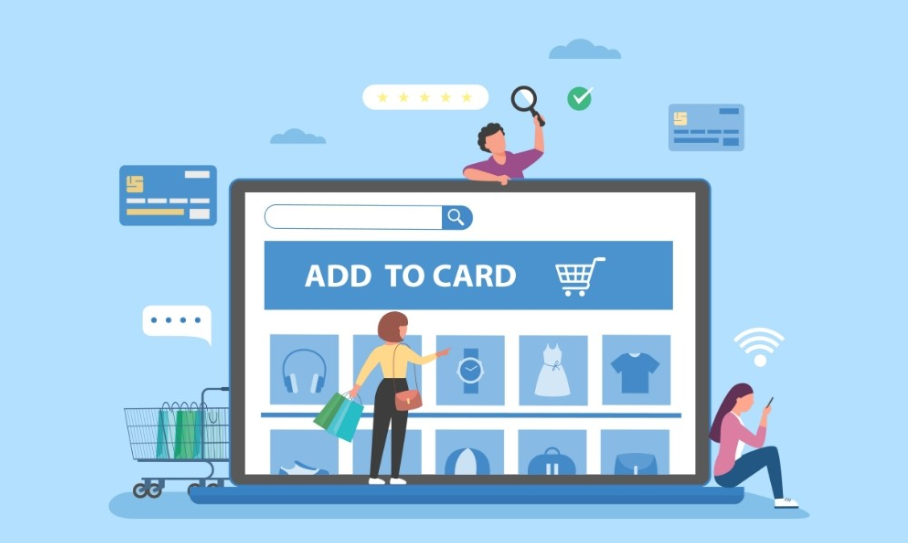
4. Real-time product information
Offering real-time product information is a critical component of a successful B2B eCommerce for manufacturers strategy. B2B buyers expect accurate and up-to-date data to make informed decisions efficiently. Here’s how to ensure your B2B eCommerce platform provides real-time product information:
- Integrated data management: Ensure seamless integration between your B2B eCommerce platform and your product information management (PIM) system. This integration guarantees that any updates or changes to product information are reflected instantly.
- Inventory tracking: Integrate your inventory management system with the eCommerce platform. Buyers should be able to view accurate stock levels and availability as they browse products.
- Instant price updates: Reflect any price changes, discounts, or promotions immediately. Real-time pricing information enables buyers to make purchase decisions based on the most current data.
- Product specifications and details: Ensure that product specifications, features, and attributes are accurate and current. Include detailed descriptions, technical data, and any relevant documentation.
- Live chat support: Offer live chat support to help buyers with inquiries in real time. Live chat enables immediate clarification on product details and specifications.
- Mobile responsiveness: Ensure your B2B eCommerce platform is optimized for mobile devices. Many B2B buyers use smartphones and tablets to access real-time information while on the go.
5. Sell on marketplaces
Selling on B2B marketplaces offers manufacturers a powerful avenue to reach a broader audience, tap into new markets, and boost sales. To effectively sell on these platforms, follow these steps:
- Choose the right marketplaces: Research and select B2B marketplaces that align with your industry, target audience, and product offerings. Consider factors such as reputation, audience size, and marketplace fees.
- Optimize your product listings: Create compelling and detailed product listings that showcase your offerings effectively. Use high-quality images, comprehensive descriptions, and key specifications to capture buyer interest.
- Competitive pricing strategies: Set competitive pricing that reflects the value of your products while considering market trends and competitors’ pricing. Highlight any special offers or volume discounts.
- Leverage marketplace tools: Utilize tools offered by the marketplace to enhance your presence. These may include promotional opportunities, sponsored listings, and analytics for insights into buyer behavior.
- Customer reviews and ratings: Encourage satisfied buyers to leave positive reviews and ratings. Good reviews build trust and credibility, influencing potential buyers’ decisions.
- Responsive customer support: Provide excellent customer support to address inquiries, concerns, and order-related issues promptly. Responsive communication enhances the buyer experience.
- Marketing and promotion: Promote your marketplace presence through your own marketing efforts. Utilize social media , email campaigns, and other channels to direct buyers to your marketplace listings.
- Inventory management: Keep your inventory levels updated on the marketplace to prevent overselling. Sync your inventory management system with the marketplace for accuracy.
- Evaluate ROI: Regularly assess the return on investment (ROI) from your marketplace efforts. Determine if the sales generated justify the time, resources, and fees involved.
Key considerations for establishing a B2B eCommerce for manufacturers
1. Define your audience and their needs
The foundation of a successful B2B eCommerce for manufacturers venture lies in a deep understanding of your target audience and their specific needs. Here’s how to define your audience and cater to their requirements:
- Identify your target audience: Pinpoint the industries, sectors, and businesses that align with your manufacturing offerings. Consider factors such as size, location, and specialization.
- Understand their roles: Dive into the roles of your target audience within their organizations. Identify decision-makers, procurement managers, engineers, and other stakeholders who influence purchasing.
- Identify key objectives: Determine the goals and objectives of your audience. Are they looking to streamline processes, reduce costs, enhance product quality, or expand their product offerings?
- Study industry trends: Stay abreast of industry trends and technological advancements that impact your target audience. This knowledge helps you align your offerings with their evolving needs.
- Analyze previous interactions: If applicable, analyze data from previous interactions with your audience. Look for patterns in inquiries, requests for quotes, and preferences.
- Customer surveys and feedback: Engage your existing customers through surveys and feedback mechanisms. Gain insights into their experiences, pain points, and suggestions for improvement. Competitor analysis: Study your competitors to identify gaps in meeting your audience’s needs. Understand where you can provide unique value and differentiation.
- Create buyer personas: Develop detailed buyer personas that represent segments of your target audience. These personas should encapsulate demographics, challenges, goals, and buying behaviors.
- Tailor your messaging: Craft messaging that directly addresses the pain points and objectives of your audience. Speak their language and offer solutions that resonate with their needs.
- Personalized content: Create content that educates and assists your audience in overcoming challenges. This could include blog posts, whitepapers, and guides that align with their interests.
2. Choose the products you will sell online
Here’s a systematic approach to help you select products that align with your business goals and cater to your target audience:
- Identify core offerings: Determine your core product categories or offerings. These are the essential products that align with your manufacturing capabilities and provide the foundation for your eCommerce platform.
- Prioritize high demand products: Analyze market trends and demand patterns within your chosen industries. Prioritize products that have consistent demand and offer potential for growth.
- Research competitors: Study your competitors’ product offerings. Identify gaps in the market that your products can fill or areas where you can provide better value.
- Consider profit margins: Evaluate the potential profit margins for each product. Consider factors such as production costs, pricing strategies, and the overall profitability of the offering.
- Address pain points: Select products that address the pain points and challenges faced by your target audience. Your offerings should provide solutions that enhance their operations.
- Offer complementary products: Consider offering complementary products that enhance the value of your core offerings. Cross-selling related items can increase the average order value.
- Focus on differentiation: Choose products that set you apart from competitors. Whether it’s through unique features, quality, customization options, or pricing strategies, differentiation is key.
- Scalability and growth potential: Assess the scalability of your chosen products. Ensure that your manufacturing capabilities can accommodate increased demand as your eCommerce venture grows.
3. Build your ecommerce store
- Choose your eCommerce platform: Select an eCommerce platform that aligns with your business needs and scalability. Options like Shopify , Magento, WooCommerce and BigCommerce offer features tailored to B2B businesses.
- Choose your store’s theme: Pick a theme that reflects your brand’s identity and provides a user-friendly experience. Consider themes with B2B-focused features like customizable pricing, bulk ordering, and account management.
- Choose your store design: Design your store with a clean, professional layout that enhances user experience. Ensure easy navigation, clear product categorization, and prominent CTA
- Write your product description: Write product descriptions that are informative, persuasive, and tailored to your B2B audience. Highlight features, benefits, specifications, and applications.
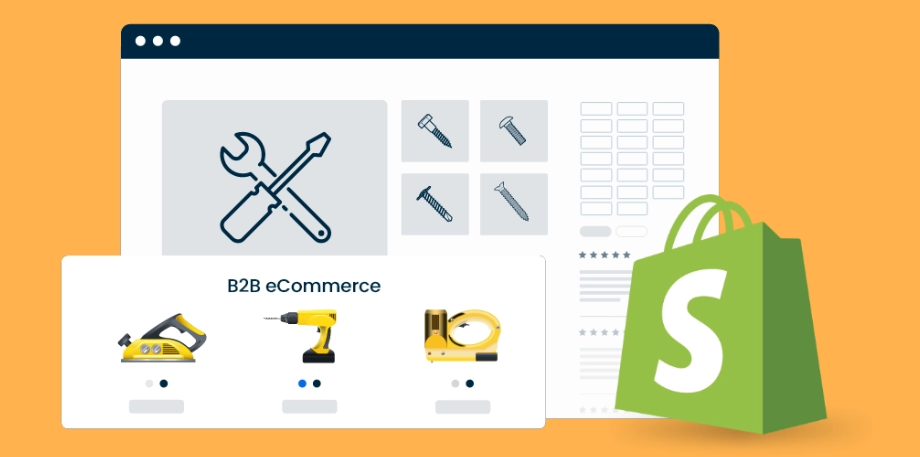
4. Find agency partners
Choosing the right agency partner is crucial to building a successful B2B eCommerce platform. Collaborating with experts who understand your industry and objectives can significantly impact your online venture’s effectiveness. Therefore, finding the right agency partner requires careful consideration and due diligence. A well-chosen agency can provide the expertise, creativity, and support needed to bring your B2B eCommerce platform to life successfully.
Example of successful B2B eCommerce manufacturers
General Electric (GE)
General Electric (GE) is a multinational conglomerate that operates across various industrial sectors, including aviation, healthcare, power, renewable energy, and more. They manufacture a wide range of products, from jet engines and medical equipment to power turbines and digital solutions.

General Electric (GE) has been successful in embracing B2B eCommerce for manufacturers as part of its overall business strategy. Here’s how they have approached B2B eCommerce and why it has been effective:
- Comprehensive product catalog: GE offers an extensive array of industrial products, and their B2B eCommerce platform provides a comprehensive catalog showcasing these offerings. This catalog includes detailed product information, specifications, and use cases. This strategy helps businesses easily find the specific products relevant to their industry and needs.
- Customization and configuration: Many of GE’s products, such as power turbines and healthcare equipment, can be highly customized based on the specific requirements of their customers. Their B2B eCommerce platform allows customers to configure and customize products according to their preferences, ensuring that the solutions meet their unique demands.
- Streamlined procurement process: GE’s B2B eCommerce platform streamlines the procurement process for businesses. Customers can place orders online, track their orders, and manage their accounts, which enhances convenience and transparency. This approach saves time and effort for their business clients.
- Integration with other systems: For many B2B customers, integration with existing procurement systems and workflows is crucial. GE’s eCommerce platform often supports integration with procurement software and processes, ensuring a seamless experience for their customers.
- Digital transformation and innovation: GE’s B2B eCommerce strategy aligns with their broader digital transformation initiatives. They have invested in technologies that enhance the digital experience, such as digital twin technology for predictive maintenance and remote monitoring of industrial equipment.
3M
3M is a global conglomerate known for its innovation and diverse range of products. They operate in various sectors, including consumer goods, healthcare, industrial, safety, and more. Their products span from adhesive tapes and medical devices to filtration solutions and automotive products.
3M’s success in B2B eCommerce is a result of their strategic approach to serving business customers. Here’s how they’ve executed their strategy and why it has been effective:
- Wide product range: 3M offers an extensive portfolio of products that cater to multiple industries and sectors. Their B2B eCommerce platform features a diverse catalog with products ranging from industrial adhesives to personal protective equipment. This broad range enables them to serve a wide array of B2B customers.
- Customization and configuration: Many of 3M’s products can be tailored to specific needs. Their B2B eCommerce platform often offers customization options, allowing customers to configure products according to their requirements. This level of customization is particularly important for businesses seeking solutions that align with their unique applications.
- Online account management: 3M’s B2B eCommerce platform typically includes features for account management, order tracking, and reordering. This streamlines the procurement process for businesses, allowing them to manage their orders, invoices, and account details online.
- Training and resources: 3M often provides training resources, technical guides, and educational materials on their B2B eCommerce platform. This helps businesses understand the proper use and application of their products, enhancing customer satisfaction.
- Ease of integration: For larger business clients, 3M’s B2B eCommerce platform can integrate with procurement systems and workflows. This ensures a seamless experience and supports the integration of 3M’s products into their supply chain.
Honeywell
Honeywell is a multinational conglomerate known for its diversified range of products and solutions in various industries, including aerospace, building technologies, performance materials, and safety. Their offerings span from aircraft engines and industrial automation solutions to home thermostats and safety equipment.
Honeywell’s success in B2B eCommerce can be attributed to their strategic approach in serving their business customers. Here’s how they’ve implemented their strategy and why it has been effective:
- Industry-specific solutions: Honeywell’s B2B eCommerce platform is designed to cater to a variety of industries, from aviation and manufacturing to energy and healthcare. They offer specialized solutions tailored to the unique needs of each sector.
- Comprehensive product catalog: Honeywell provides an extensive catalog of products and solutions on their B2B eCommerce platform. This includes detailed information about their offerings, such as technical specifications, features, and benefits. This approach helps businesses understand how Honeywell’s products align with their requirements.
- Customization and configuration: Many of Honeywell’s products are designed to be customizable based on the specific needs of their customers. Their B2B eCommerce platform often includes configuration tools that allow businesses to tailor products to their applications, enhancing the value proposition.
- Integration with procurement systems: Honeywell often offers integration capabilities with various procurement systems and workflows. This enables businesses to seamlessly incorporate Honeywell’s products into their existing supply chain processes.
- Industry expertise and insights: Honeywell leverages their industry expertise by sharing insights, trends, and best practices relevant to their customers. This content is often available on their B2B eCommerce platform, providing additional value to businesses.
The final word
In the ever-evolving landscape of business-to-business interactions, the realm of manufacturing has witnessed a transformative shift through the integration of B2B eCommerce for manufacturers. As we conclude this quick-start guide to online operations for manufacturers, it’s clear that embracing digital platforms is no longer a mere option, but a strategic imperative. The dynamic nature of B2B transactions demands that manufacturers adapt to the changing preferences of buyers, and the implementation of eCommerce stands as a pivotal solution.
From understanding the profound changes in B2B buyer behavior to unraveling the manifold benefits of B2B eCommerce for manufacturers, this guide has illuminated the path toward successful online operations. The ability to extend reach, enhance efficiency, and foster innovation has never been more accessible, thanks to the power of digital platforms.




